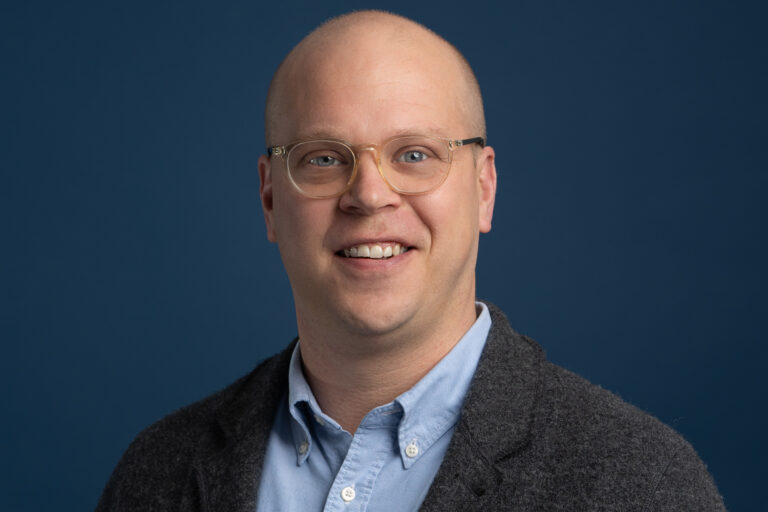Research teams led by Dr. Amy Van Hecke, professor of psychology in the Klinger College of Arts and Sciences, and Dr. Stacy Barnes, director of the Wisconsin Geriatric Education Center and associate professor of practice in the College of Nursing, have been awarded grants totaling $1,007,576 over the course of 36 months from the Advancing a Healthier Wisconsin Endowment, a statewide philanthropy based at the Medical College of Wisconsin.
Van Hecke’s team received $504,117 to increase capacity for autism spectrum disorder diagnosis within primary health care across Wisconsin. Barnes’ team will focus on connecting dementia patients and caregivers to essential community resources, for which it received $503,459.
“We are appreciative to Advancing a Healthier Wisconsin and the Medical College of Wisconsin for their partnership in addressing health concerns that have a disproportional impact throughout our communities,” Van Hecke said. “Late diagnosis of ASD can have lifelong impacts. We are finding that racial and ethnic minorities, and those living in underserved areas, are diagnosed more infrequently and years later than children living in suburban areas or white children.”
The project titled “Battling the Bottleneck: Increasing Capacity for Autism Spectrum Disorder Diagnosis,” intends to study the systems creating barriers to an autism diagnosis in Wisconsin and train primary care professionals across the state in autism diagnosis and family navigation. The goal is to address the significant racial and geographic disparities which exist in the timely diagnosis of autism. Van Hecke is the principal investigator on the project and is joined by Dr. Norah Johnson, associate professor in the College of Nursing, and Dr. Mary Carlson, clinical associate professor in the College of Education, as co-investigators. Other partners include the Next Step Clinic, a product of the Marquette President’s Challenge in 2018, of which Van Hecke is co-executive director and Johnson and Carlson are practicum supervisors; Dr. Kathleen Koth at MCW; Leah Jepson at Mental Health America of Wisconsin and the Milwaukee Coalition for Children’s Mental Health; the MCW Child Psychiatry Consultation Program; and Vanderbilt University.
The goal of “Student Champions: Connecting Dementia Patients and Caregivers to Community Resources” is to quickly connect patients diagnosed with dementia and caregivers to essential resources in the community. The project will train students in medicine, nursing, and pharmacy programs about available dementia support services and how to initiate a referral via “Direct Connect” — an established referral program that is currently underutilized by health care professionals. This will support the more than 120,000 Wisconsin residents afflicted with dementia, a number which is expected to increase by 8.3% by 2025.
“Dementia is a neurocognitive disorder, the most common form of which is Alzheimer’s Disease. It can lead to loss of independence, diminished quality of life, premature death, and caregiver burden,” Barnes said. “The impact of the disease on families is substantial as dementia caregivers are more likely to experience greater emotional, financial, and health complications than other types of caregivers. By quickly connecting patients and caregivers with available support services, we hope to lessen the burden on families and support them earlier in the disease process. Students will learn how to champion this referral process at clinical sites throughout Wisconsin, which in turn will enable us to help a greater number of people in our state.”
Marquette is partnering with Advocate Aurora Health, the Wisconsin Alzheimer’s Association, and the Medical College of Wisconsin on this project. Barnes is the principal investigator on the project and is joined by Katie Denson, professor of medicine at the Medical College of Wisconsin, and Wendy Betley, senior program director of the Wisconsin Alzheimer’s Association, as co-investigators.
The Advancing a Healthier Wisconsin Endowment was established by the Medical College of Wisconsin in 2004 to serve as a catalyst for positive change in the health of Wisconsin communities. Through its guiding principles of collaboration, transformation and stewardship, AHW has invested $275 million in more than 475 projects focused on community health improvement, research and health workforce education since its inception.


